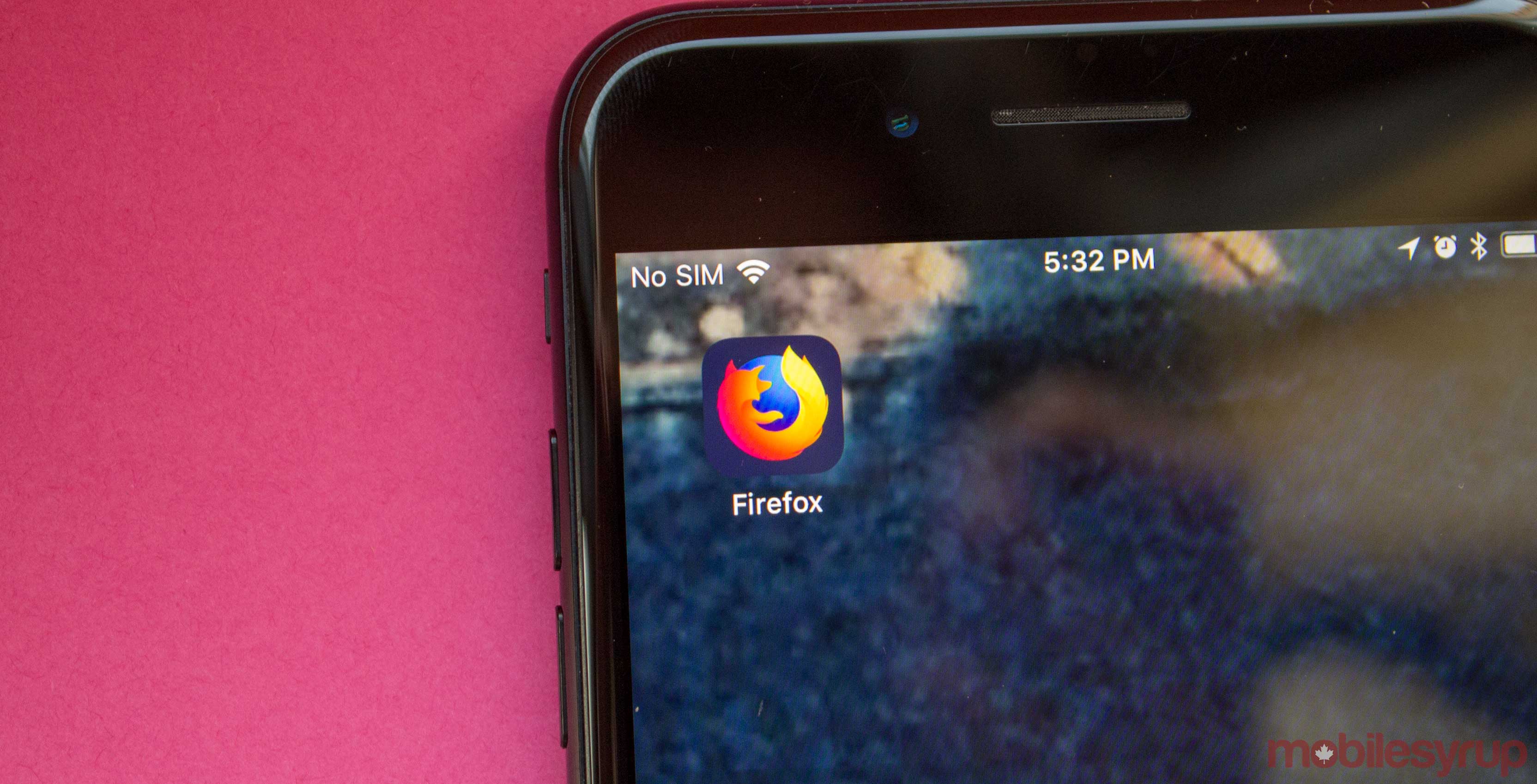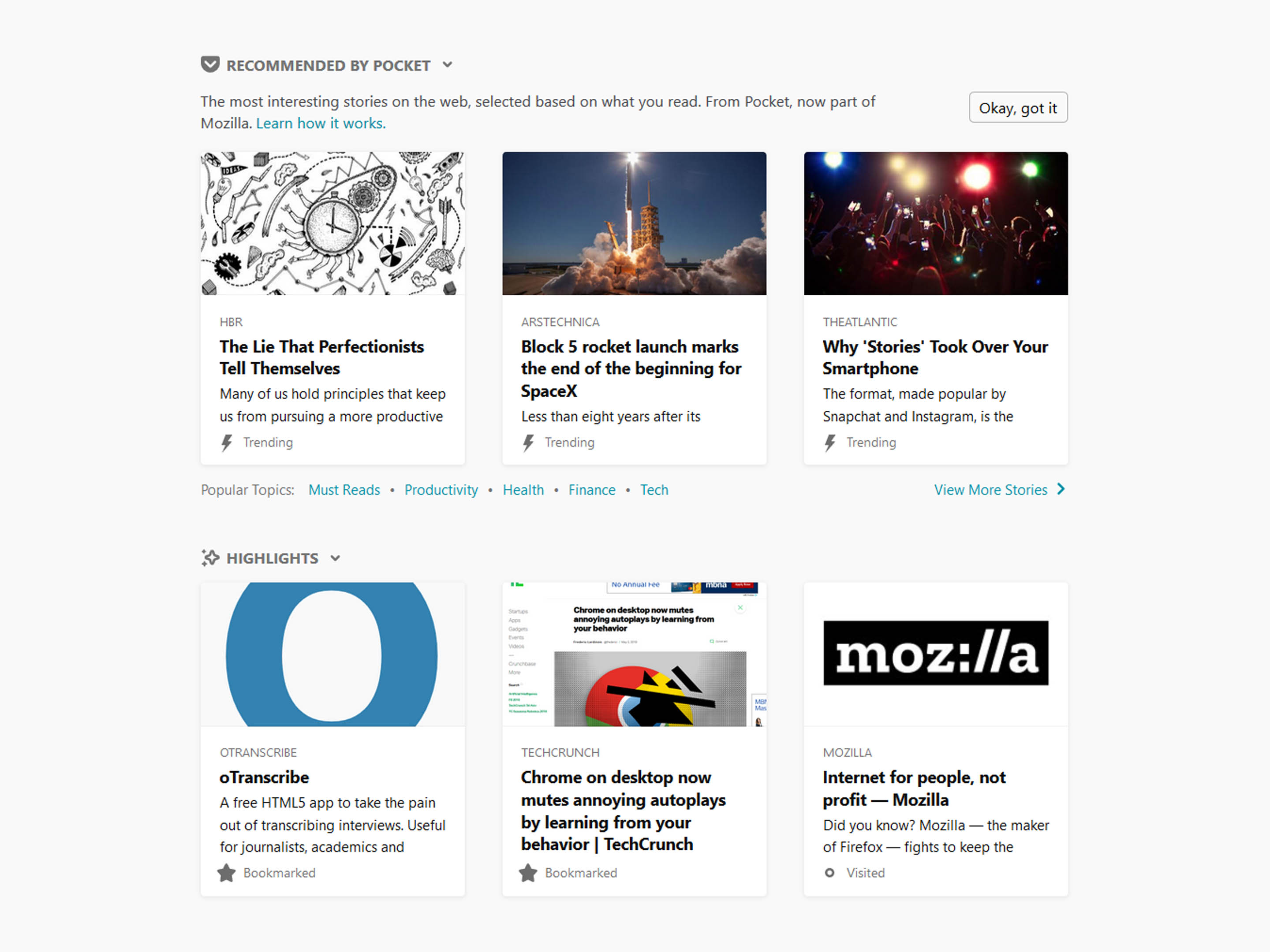
The Firefox browser’s new tab page is getting sponsored content to help Mozilla fund its business and prove a point.
According to a blog post from Pocket CEO and founder Nate Weiner, the feature will be rolled out as part of the Firefox 60 update, due out May 9th. Pocket, a read-it-later service, was acquired by Mozilla in early 2017.
Firefox’s new tab page has showcased reading suggestions from Pocket for some time now. Firefox began testing the sponsored content in its beta and nightly builds on April 30th. The sponsored content resides among the other suggested stories on the new tab page.
Firefox is hoping to set itself apart from Facebook’s and Google’s advertising initiatives. The company claims to focus on privacy and quality content. Weiner wrote in his blog post that the sponsored content will be personalized client-side. This means Firefox won’t be sucking up your personal information to feed its content suggestion algorithms.
Because Firefox is opensource, the code is available for anyone to see. This means that users can go to sites like GitHub to see exactly what Firefox collects and how. This is another way that Weiner says Firefox is different. It’s open about how its data-collection and advertising works.
“We’ve come to accept a premise around advertising today that users need to trade their privacy and data in exchange for personalized, high quality experiences. Our experiments over the last few months have proved that this isn’t true,” writes Weiner.
Weiner also boasts a commitment to quality content — things you will actually want to read, not click-bait. Part of that means it’s easy to hide content you don’t want to see and you can disable sponsored content altogether.
Mozilla likely won’t make as much from its advertising venture as Google or Facebook, but profits aren’t really the point. The company’s motto is “internet for people, not for profit” after all.
Weiner hopes that this model will be an example to other online advertises of how they can promote content without jeopardizing privacy. “We are indeed able to create personalized sponsored content that provides value to users without jeopardizing their privacy. This is an exciting result because it promises to create a more user-centered model for supporting content on the web.”



